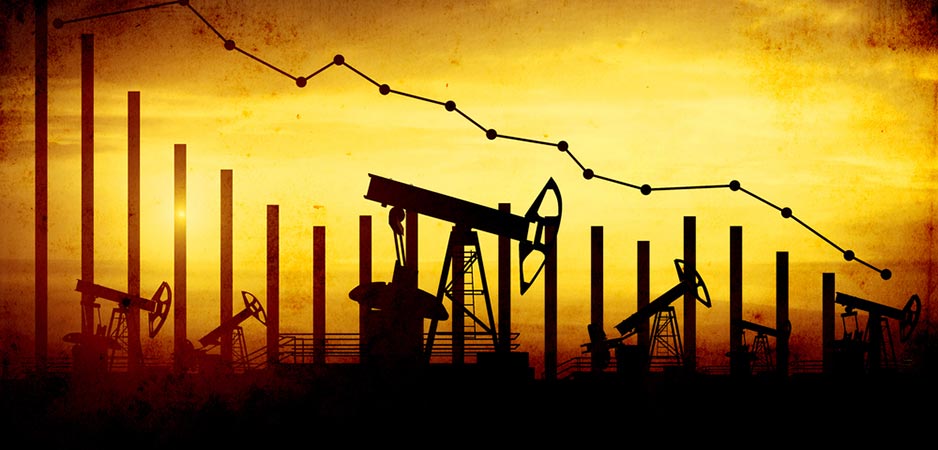When US oil prices dropped to below zero in April, the media reacted in the same way they do to any radical change in the status quo. Even though it is entirely about human behavior, the media painted the plunge in price as the equivalent of a natural catastrophe due to its unexpected effect on the economic sacred status quo.
Like any commodity, the value of oil is measured by its market price. If the price is zero or less, it means the market no longer needs the oil that is available. To any reasoning human being, this surprising historical twist should raise a complementary moral question: Everyone knows the price of oil, but who knows its worth?
COVID-19 and Low Oil Prices Threaten to Leave Saudi Arabia With Empty Hands
Environmentalists have long been arguing the case that fossil fuel should be given a negative worth estimate. For all its undeniable usefulness in the consumer society, we now know that the use of fossil fuel impoverishes and even threatens the viability of the habitat humans and all other living things depend on.
In the face of such dramatic events, the serious news media knows how to focus on what really matters. The New York Times offered this alarming headline to an article by Clifford Krauss on the collapse of oil prices: “‘I’m Just Living a Nightmare’: Oil Industry Braces for Devastation.”
Here is today’s 3D definition:
Devastation:
1. Unjustified or incomprehensibly motivated destruction
2. The feeling that people who believe themselves to be virtuous have been betrayed either by fate or, more likely, other people and consequently deserve to be compensated
Contextual Note
The Times quotes Ben Luckock, identified as representing “a large exporter of American crude,” who is “worried that the current disorderly market has adversely damaged the industry.” Apart from the tautology — by definition, damage always produces an adverse effect — the reader should notice the speaker’s sense of priorities. By now, most people realize that fossil fuel damages the planet and the very air we breathe. But both for Luckock and The Times, that kind of generational if not existential damage cannot compete for the public’s attention with the fear of anything that might disturb the capacity of an industry to make a profit and continue its activity.
Industries are not just important. They have become the basis of human civilization. They require our permanent support for a simple reason: They produce wealth for their investors and jobs for the rest of humanity, who would be reduced to absolute misery if deprived of the hope of finding a job. Creating jobs for any purpose — even a destructive one — is an act of charity to the rest of humanity.
Such a moral system claims to be focused on the needs of human beings, who belong to two distinct categories. Some need to feel wealthy, others simply need to survive. All citizens — rich (investors) and poor (job seekers) — must understand that their duty is to sacrifice both themselves and even the “wealth of their nation” to the health of industry. Though Adam Smith and his followers may not agree, the wealth of a nation is cultural and not just economic. That a particular industry may be damaging the “common wealth” (not just of the nation, but of the planet as well) has little importance to the hard reasoning economist, since the nation and the planet do not reward people for their good deeds unto them, whereas industries do.
Luckock explains why he believes it is important that the government bail out the fossil fuel industry. “In the short term some form of government assistance is likely needed because the price levels we are currently transacting at are unsustainable for U.S. producers,” he says. The word “sustainable” should painfully remind the reader that in the competition between sustaining an industry and sustaining the planet, there may be a choice to be made. The only object of concern that Krauss, the author of the article, and those he interviews can even imagine implies sustaining industry. The environment can wait.
Historical Note
The idea of saving a vital industry even at the price of compromising the future of humanity may sound cynical in its neoliberalism. Because The Times desperately wants to avoid sounding cynical, Clifford Krauss makes a noble effort in the first paragraph of the article to focus on the plight of real, working people. He writes: “Workers at Marathon Petroleum’s refinery in Gallup, N.M., are turning off the valves. Oil companies in West Texas are paying early termination fees to contract employees rather than drill new wells. And in Montana, producers are shutting down wells and slashing salaries and benefits.” This reveals everything we need to know about the moment of history we are now living in as well as the ideological bias of so-called reliable news sources such as The New York Times.
The journalist has employed one of the standard approaches to capturing the interest of the reader on a subject they might not be familiar with: the anecdotal lead. Even better than a simple introductory anecdote is a series of dramatic ones. They establish a sense of anguish that focuses the reader’s attention on one narrow aspect of the subject matter.
In Krauss’ article, the initial paragraph serves to establish the newspaper’s moral credentials by expressing its concern for ordinary people. It’s all about the suffering of the poor: losing jobs or seeing their salaries and benefits slashed. With that paragraph out of the way, the rest of the article is entirely about the concerns of the elite.
The author nevertheless offers one brief reminder of the link with the needs of the working class when, in a moment of historical reflection, he recounts that “the oil industry has become so big and important — it directly and indirectly employs 10 million people — that its problems will deal a blow to many kinds of businesses, including manufacturers that build its equipment, steel companies that make its pipes and banks and hedge funds that lend it money.”
The scale of devastation is uncontestable. The journalist cites Jim Wilkes, the president of Texland, who sums up the message and mood of the article: “It’s a sad time for our business, that’s for damn sure.” The historical importance of the tragedy merits, in Aristotelian terms, our pity and fear. “Just a few months ago, the American oil industry was triumphant in its quest for energy independence, having turned the United States into the world’s biggest petroleum producer for the first time in decades,” Krauss writes. As Hamlet’s ghostly father would say in another famous tragedy, “what a falling off was there.”
Nothing expresses better than this remark where The Times’ sympathy lies: “Oil companies generally employ service companies to do their drilling and fracking, and so the downturn is particularly painful for those businesses — Halliburton, Baker Hughes and Schlumberger.” Poor suffering Halliburton, Baker Hughes and Schlumberger, three companies who remember how profitable the war in Iraq turned out to be for them in that distant golden age when US policy — and its propaganda, enthusiastically disseminated by The New York Times — ensured what they believed at the time would be unending prosperity. History is unkind to the bravest of the brave, companies once willing to make the sacrifice of sending their workers into dangerous war zones where they risked their lives and ensured their companies’ fortunes.
And now we learn that in some of the companies concerned, the situation is so dire that “senior executives have taken a 50 percent pay cut.” What human being could possibly survive on half of the salary of an oil industry senior executive?
*[In the age of Oscar Wilde and Mark Twain, another American wit, the journalist Ambrose Bierce, produced a series of satirical definitions of commonly used terms, throwing light on their hidden meanings in real discourse. Bierce eventually collected and published them as a book, The Devil’s Dictionary, in 1911. We have shamelessly appropriated his title in the interest of continuing his wholesome pedagogical effort to enlighten generations of readers of the news.]
The views expressed in this article are the author’s own and do not necessarily reflect Fair Observer’s editorial policy.
Support Fair Observer
We rely on your support for our independence, diversity and quality.
For more than 10 years, Fair Observer has been free, fair and independent. No billionaire owns us, no advertisers control us. We are a reader-supported nonprofit. Unlike many other publications, we keep our content free for readers regardless of where they live or whether they can afford to pay. We have no paywalls and no ads.
In the post-truth era of fake news, echo chambers and filter bubbles, we publish a plurality of perspectives from around the world. Anyone can publish with us, but everyone goes through a rigorous editorial process. So, you get fact-checked, well-reasoned content instead of noise.
We publish 2,500+ voices from 90+ countries. We also conduct education and training programs
on subjects ranging from digital media and journalism to writing and critical thinking. This
doesn’t come cheap. Servers, editors, trainers and web developers cost
money.
Please consider supporting us on a regular basis as a recurring donor or a
sustaining member.
Will you support FO’s journalism?
We rely on your support for our independence, diversity and quality.






